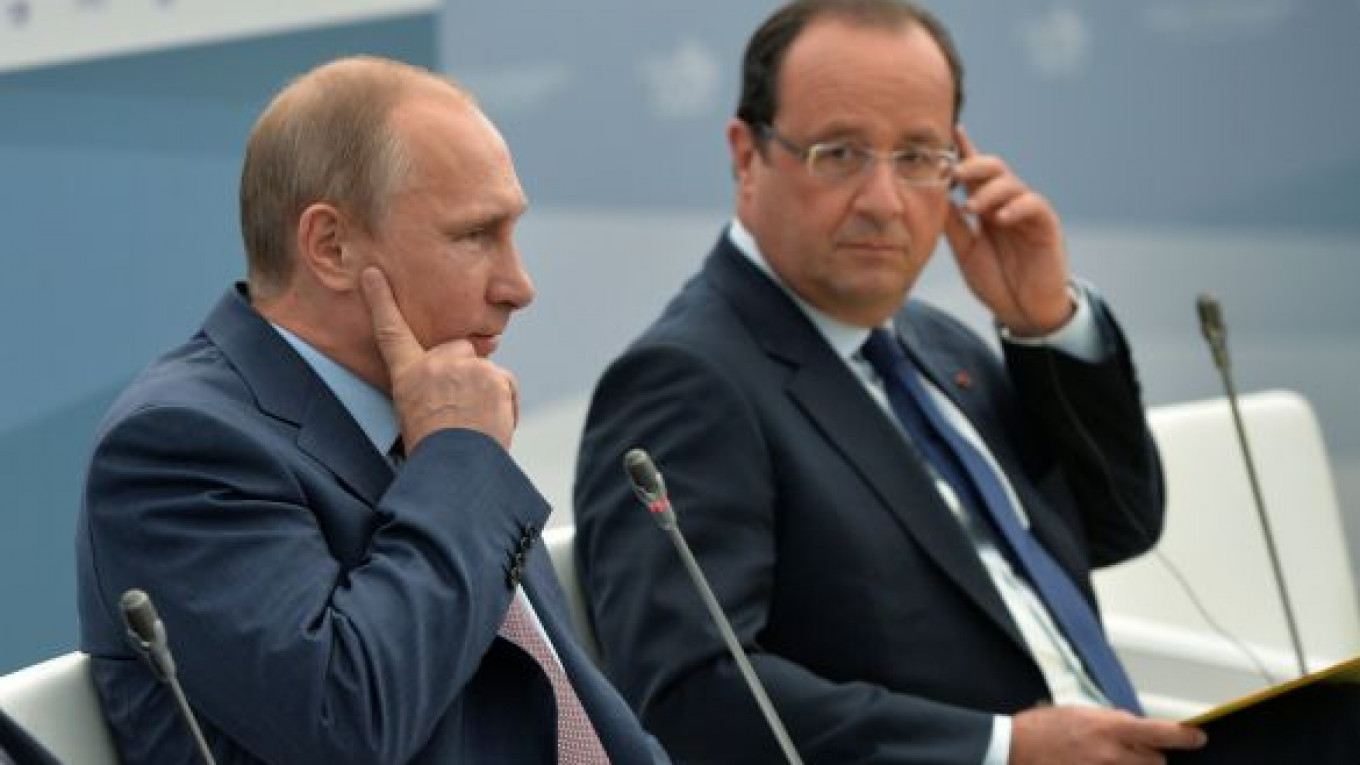Media reports claiming that Russian special services tried to spy on foreign delegates during a recent G20 summit are an unsubstantiated attempt to divert attention away from more pressing espionage allegations against Washington, President Vladimir Putin's spokesman Dmitry Peskov said.
According to a report in Italian newspaper Corriere della Sera, complimentary USB flash drives and mobile phone chargers given to delegates during last month's G20 summit in St. Petersburg were equipped to gather information from laptops and mobile phones.
"We don't know the source of the information. However, this is undoubtedly nothing but an attempt to shift the focus from issues that truly exist in relations between European capitals and Washington to unsubstantiated, non-existent issues," Peskov told RIA Novosti on Tuesday.
Corriere della Sera said in its front-page story that initial suspicions were voiced by European Council President Herman Van Rompuy upon arriving in Brussels after the summit. He reportedly asked his security experts and Germany's secret service to analyze gifts that members of his delegation had received in St. Petersburg.
A memorandum that was then sent out to G20 members indicated that the electronic devices could indeed be used for information-gathering, the newspaper said. However, the newspaper did not rule out that the claims could be a "trap" intended to "embarrass the Russians."
The report came on the heels of recent media articles alleging that the U.S. National Security Agency spied on many of Washington's allies in Europe, such as Germany, France, Spain and Italy. The revelations, based on data provided by fugitive intelligence leaker Edward Snowden, suggested that U.S. special services monitored millions of telephone calls, including those by the heads of at least 35 states.
Russia turned down a U.S. extradition request for Snowden and granted him temporary asylum earlier this year.
A Message from The Moscow Times:
Dear readers,
We are facing unprecedented challenges. Russia's Prosecutor General's Office has designated The Moscow Times as an "undesirable" organization, criminalizing our work and putting our staff at risk of prosecution. This follows our earlier unjust labeling as a "foreign agent."
These actions are direct attempts to silence independent journalism in Russia. The authorities claim our work "discredits the decisions of the Russian leadership." We see things differently: we strive to provide accurate, unbiased reporting on Russia.
We, the journalists of The Moscow Times, refuse to be silenced. But to continue our work, we need your help.
Your support, no matter how small, makes a world of difference. If you can, please support us monthly starting from just $2. It's quick to set up, and every contribution makes a significant impact.
By supporting The Moscow Times, you're defending open, independent journalism in the face of repression. Thank you for standing with us.
Remind me later.






